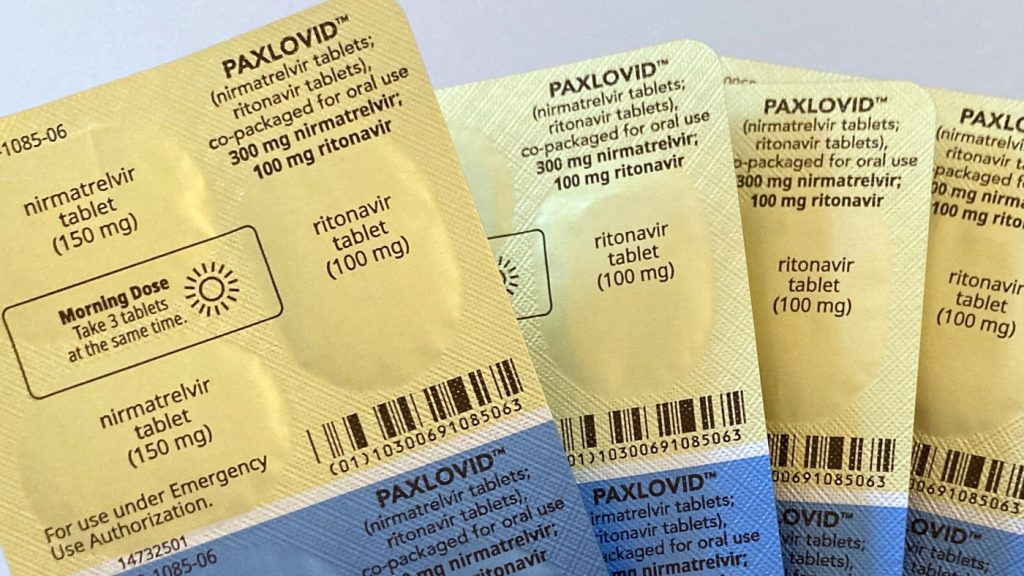COVID-19 and Paxlovid: A New Perspective on Disease in the U.S., Europe, and the Middle East
This is the last newsletter I will send before I start a book leave. I’ll be back in late January. Until then, other Times journalists will be writing The Morning, and I look forward to reading their work along with all of you.
The researchers combed through hundreds of thousands of electronic health records from the VA for patients who tested positive for COVID-19 between March and June 2022, and found that most of them were free of disease. They looked at health outcomes of patients who took Paxlovid early in their illnesses and those who didn’t.
The author is a doctor named Kent Sepkowitz who is an expert in infectious disease. The Cancer Center in New York is run by the Kettering Cancer Center. The views that he expresses are of his own. CNN has more opinion on it.
The Covid-19 epidemic is not the only problem: Preventing the next epidemic by using the right medications, not the wrong herbs: The case of Paxlovid
The reason for concern is quite real: Those who benefit from Paxlovid the most — older adults — are the very same people who frequently take heart and blood-thinning medications. I took Paxlovid in April to stop my cardiac medication from causing a heart rhythm disorder. But once off the rhythm-calming drug, I promptly fell back into the unpleasant and potentially dangerous abnormal rhythm — just another example of the never-any-free-lunch M.O. that clouds all medical advances. On resumption of my cardiac medication post-Paxlovid (as recommended), my heart rhythm returned to its regular beat.
The medical journal categorizes the problem as a “review topic of the week”, but the news articles suggest the problem has been overlooked until now. In medical journal parlance, a “review” denotes a roundup of existing work synthesized into a readable whole. It’s certainly not anything new or edgy.
This is not simple quibbling. Rather the endless “should have done this, not that” opinions may have a long-term and damaging effect as the Covid-19 pandemic begins to harden into history. Some people say that public health officials are dumb. It can be problematic if the history of the Covid-19 experience is carved into it, since future experts will be brought in to look at the lessons of the great Covid-19 epidemic of 2020 to 2022.
This rush to the history books is what many current experts did in the early days of Covid-19, seeking to learn the lessons, if any, from the 1918 flu pandemic. The same story was told in the more recent articles and historical reviews, that masks and other nonpharmaceutical interventions were effective when used but were unpopular and therefore used only halfheartedly.
To those who are reading this in the 22nd century, hoping to find a way to convince their colleauges to be socially responsible, we say that there is well-demonstrated evidence.
The collective message is based on one of the few non-reviled public health messages to date, that only you can prevent the next epidemic.
The drug stops the virus from replicating. “We know that one of the key factors that predict long COVID is detectable virus in the bloodstream at the time of infection,” Dr. Peter Chin-Hong, an infectious disease physician at the University of California, San Francisco, wrote in an email. “So it stands to reason that interventions that prevent the virus from making more copies of itself would therefore lead to a lower risk of long COVID.”
The drug, which has been available in the U.S. for almost a year, is provided for free by the federal government at pharmacies across the country. It requires a prescription, and patients with COVID-19 must start it within five days of symptom onset.
According to the study, long COVID was defined as a symptom that develops within three months after testing positive for something. By these metrics, patients that took Paxlovid were 26% less likely to develop long COVID.
The study is a preprint, meaning it was shared publicly before being reviewed and vetted by outside researchers. But experts who were not involved in the study tell NPR the findings make sense, given how Paxlovid works.
But the value of the study is that it points researchers down promising pathways for more research, says Dr. Monica Gandhi, an infectious disease physician at UCSF. “It’s hypothesis-generating,” she says, “It’s exciting and hopeful [to think] that if you reduce the viral load… down to undetectable [early in the illness], maybe you can prevent post-COVID symptoms” altogether – a theory she thinks researchers could pursue.
“This study is pushing me to use [Paxlovid] in people who are over 65, vaccinated and boosted, because it’s probably going to have other benefits beyond preventing hospitalization,” she says.
